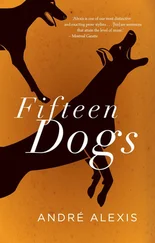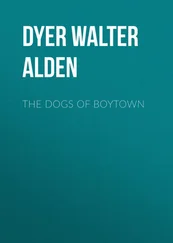Jude waits. ‘Don’t eat them before supper,’ he says.
OK, Jude.
Hope is not a problem for the starmen any more and pride is not a problem for them either. It is never a problem. They have no time for modesty, which is very time-consuming. Pride is definitely not a problem for many scientists and this is a help to them because there ought to be no distractions in this business of making discoveries which is a full-time job chiefly requiring hope and foresight, and it is why the men at NASA fell apart only very briefly when they discovered a flaw in the most perfect mirror in the world and were able so soon to turn calamity into triumph, instead of slamming the door on NASA and maybe wandering off into forests without shoes.
Edwin Hubble, champion boxer! war hero! publishes a paper with his colleague Milton Humason in 1929 on what he discovers to be an expanding Universe, based on thoughts to do with redshift and distance, and in it he is largely removing the vagueness in previous speculations made by Georges Lemaître two years earlier, but he never mentions Georges, not once, Georges who was an ordained priest before taking up astronomy, a pursuit interrupted by the Great War in which he won La Croix de Guerre avec palmes , a great distinction in my opinion, though he may well have preferred something else, a telescope in his name, a theory, rules and laws.
The recession velocity of a distant galaxy, its redshift, is directly proportional to its distance. Hubble’s Law. The number representing the rate at which the Universe is expanding = Hubble constant. There is Hubble time and a Hubble radius and a Hubble diagram and there is the HST, the Hubble Space Telescope.
Milton Humason went to summer camp near Mount Wilson in 1904 when he was fourteen years old and he fell in love with the mountain, quitting school shortly thereafter and taking on joe jobs when they were building the dome of the observatory at an altitude of 1,750 metres to house the Hooker telescope designed by George Ellery Hale. Milton begins as donkey driver, hauling equipment up the slopes and then he is janitor, then night assistant, until Harlow Shapley takes note of Milton’s great skills of observation and his ability to make photographic plates of faint astronomical objects, and offers him a post in 1920, putting him to work with Edwin Hubble.
Humason is shy about his lack of education but he is a great observer, one of the best ever, even Shapley says so, and Hubble certainly knows it, making him do a new kind of donkey work, Humason the one spending long dark nights in winter which are best for star watching, freezing in an observatory open to the sky and lit by a dim red bulb only, so as not to mar the photographic plates, and unheated because currents of convection can blur the field of vision. Because of the Earth’s rotation and the vagaries of the clockwork tracking system, Milton must never let go of the telescope if he wants to hold one same object in his sight across the sky, the telescope becoming an extension of him, in step with him, it is him.
There was quite a lot of fighting in the astronomy community of the 1920s, the heat of argument, say, tending to blur the field of vision. In science, these are called debates. Here are men arguing about the distance to the stars based on the observation of variable stars, measuring absolute magnitude and periods of luminosity, unsure whether the nebulae they see are part of the Milky Way or galaxies out on their own, confused by stellar outbursts of light and power they don’t yet know are supernovae, signifying the gravitational collapse of massive stars that can shine briefly, each one, as hot as a hundred billion suns. How can a star so bright be so far away? Or so close?
Wishful thinking can blur the field of vision.
When Milton Humason compares plates he has taken of the Andromeda Nebula, he finds minute specks of light in some plates and not in others, variable stars he believes, variable stars Shapley insists do not exist in the Andromeda and so when Milton brings him his finest photographic plate with the careful ink marks mapping what he has seen, specks of light he has been told are not there, Shapley takes the plate away and wipes it free with a white hanky produced from a pocket, making a little nothing out of something, setting his own limits on the possible, an example perhaps, of how pride is not a problem for him.
I don’t see it, it’s not there.
Saturday, and you watch the clock you have placed at the kitchen table. You are going to the cinema, you don’t want to be late, you are never late. You love the way time works, how one same stretch of time can take for ever to pass or else slip by in a reverie, you love this, it’s lovely. Your books are spread out. Homework. Everything is lined up neatly, the edges of books parallel to the rim of the table or at perfect angles to your right and left, leaving fine triangles of table in each corner. You appreciate geometry, straight lines, hospital corners, perfect folds in white linen, you learned this, you have a Brownie badge in bed-making. You are nearly a Girl Guide, the youngest ever. Most of all though, you appreciate words, you can travel with words as with music and the seasons. Change. You even love this word change, it’s a travelling word and travel is important .
The soldier marches around the kitchen, keeping busy, he doesn’t want you to know he is watching you, he can’t help it, he loves to look at you. Frances. He wants to say I won’t let you run late, let me do this thing, watch the clock for you, but he stays quiet, tamping the tobacco down in the pipe he will not smoke inside, no smoking indoors, it gives Emily a headache. My wife, my wife, my old pal. In bed now, always in bed, his fault. He tamps the tobacco down, a sound like ticking, sound of the clock you are watching, it’s nearly time. The soldier is on the move, fiddling with the stove, stealing glances, like he is more than your father. Soldier, labourer, husband, father. What else? Nothing. Sometimes it hurts to watch you, what does it mean, forget it. Keep moving .
At times like this, he has a sudden urge to travel, not anywhere special, just to ride a train. A friend tells him a person can ride for whole days across this country and see nothing but fields of snow or corn until coming upon sea again, but mountains first, mountains like the edge of the world to stop you falling straight off, or the wall of a trench perhaps, craggy with things, limbs sometimes, and over the wall, noise, a sea of it. Stop that. It would be a fine thing to ride a train for whole days across this country he was not born in, a place he can fit his old country into twelve times over at least, but he walks instead, he walks for hours, fast, because the outdoors is good for him, for his lungs and everything else that hurts him indoors, a pain that can pass as he strides the city, passing sharply, quickly, a view from a train window .
He doesn’t see it though, making that train journey, not as long as you are here. He made choices, he is husband and father and he will not leave. He is not sure how long you will stay, it can all happen so quickly, comings and goings, the sea maybe his enemy, and all the things you know, his enemy too, each badge on your arm one step farther away from him, there is hardly any more room on your arms to show all the things you know, that you have learned so quickly, so easily, and meanwhile he knows one thing only, no one goes hungry in his house. He is not sure if that is an achievement, no one says anything, my wife never says anything .
Watching her is different. How can she be right here and so far away? He misses her. She is right here and he misses her. Watching you is different, special and fearful at the same time, a church feeling, there is a word for this, why does there have to be a word for everything? The soldier taps his pipe out and plugs it again. A church word, Creation, Incarnation, what’s that word, damnation, ha! Damnation. Bless my soul! Damn and blast it. No swearing, Bert, she won’t have it. Don’t swear, Albert. Damnation, bloody hell, Salvation … Salvation Army. He chose you, he remembers it, marching in, eyes right, eyes left, not at ease but proud, erect, and halted by you because you looked at him, you really did. Yes, please. That one. Sign here .
Читать дальше












